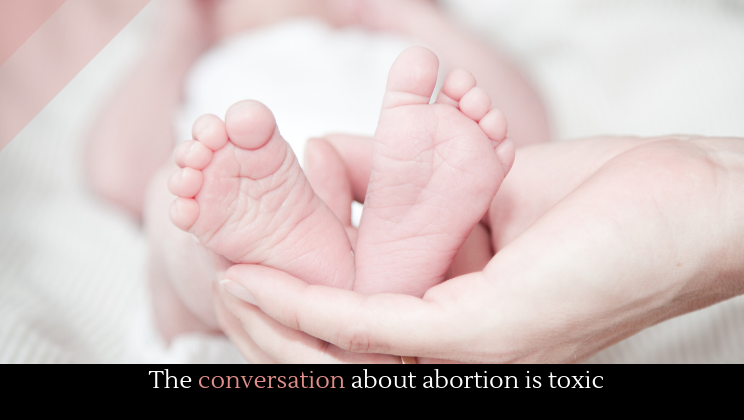The conversation about abortion is toxic
Posted by Josh Taylor / February 1, 2019
The national conversation about abortion is toxic, and it has been for some time. The subject has come to the forefront of the national consciousness recently because of several laws enacted throughout the nation. Louisiana recently enacted a law that would require doctors performing abortions to have privileges at a hospital within a thirty-mile radius of anywhere an abortion is performed. This would limit access to abortion. The Center for Reproductive Rights filed a motion with the Supreme Court and penned on opinion piece for the New York Times.
The New York Times editorial board recently published a piece entitled, “Roe v. Wade Is at Risk. Here’s How to Prepare.” The piece finishes, “The anti-abortion movement understands the high stakes of this moment. Those who support reproductive rights must as well.”
New York and Virginia have both put laws on record to ensure abortion rights are maintained. The former prevents doctors from being labeled criminals, the latter allows abortion up until the moment of birth. Pro-lifers have responded in much the same way that their opponents have to the law in Louisiana. Some have gone so far as to call these laws part of an “infanticide craze.”
The BBC speculates that a nation fight over abortion looms. They’re right––abortion has become a political issue, something to fight over in the same way that we fight over taxes.
But abortion isn’t a tax. It’s about two human lives that will be forever changed. Pro-life and pro-choice partisans are not fighting about the actual abortion, they’re fighting over the fight. Starting from first principles, then, what is abortion?
First, abortion is the removal of a fetus from a uterus.
That’s about as far as many people can go before they begin arguing over whether a fetus is a life. If a fetus is a life, then abortion is “murder.” But is that a useful question? Perhaps a more useful question is this: is removing a fetus from a uterus helpful or harmful for, 1) the mother, 2) the fetus, 3) society in general?
From there, we should ask, what constitutes something being “helpful” and “harmful?” Let’s take the most conservative approach to helpful: helpful means benefitting the physical health or emotional health (insofar as it impacts the physical health). Hurtful means the opposite: it harms the physical health (or the emotional health, insofar as it impacts the physical health).
If you think about abortion that way, it’s becomes clear that both parties are misguided in their demands. That’s because, again, they’re fighting over their fight, and they’re fighting to win. Why is it so clear that both parties are wrong? Because these principles allow for abortion (which pro-lifers hate), but only in very limited circumstances (which pro-choicers hate). It also disagrees with the fiercest pro-choicers who suggest that emotional stress is a sufficient reason for an abortion by counterbalancing that against the impact on the fetus and the society.
This is how this author thinks of abortion. Other people think of abortion differently. That’s where we need to start in this looming national debate. We need to agree that we don’t have to agree and we don’t have to adhere to the farthest extreme of pro-life or pro-choice.
More news.
Comments are off for this post.